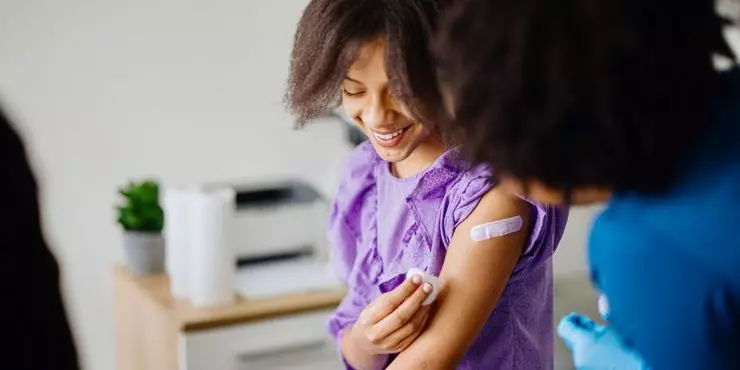
For those of us with children approaching the pre-teen years there are a lot of changes coming soon! Not only are our pre-teens going through lots of hormone changes, but there are many valuable conversations and decisions you can make to help navigate these years and set your child up for success in adulthood and old age. These conversations include the sex talk, limiting screen time, excelling in school, and much more. One important decision and conversation not to be overlooked is HPV and deciding to get your child vaccinated against this virus.
Human Papillomavirus (HPV) is a prevalent and potentially serious group of viruses that affect both men and women. As a parent, it's essential to understand what HPV is, its implications, and the importance of getting your child vaccinated. In this article, we'll delve into the world of HPV and provide guidance on when to get your child vaccinated and how to start having difficult conversations with your children.
Understanding HPV - What is it?
HPV is a group of viruses that can infect the skin and mucous membranes of humans. It's the most common sexually transmitted infection (STI) globally. There are over 200 different types of HPV, and they are categorized into low-risk and high-risk types based on their potential to cause health problems.
HPV is so common that a high majority of sexually active individuals will be infected with at least one type of HPV during their lifetime.
Health Risks Associated with HPV
Most HPV infections do not cause any symptoms and go away on their own. However, certain types of HPV do not go away or take a long time to go away and can lead to health issues:
Genital Warts: Low-risk HPV types can cause genital warts, which are growths on the genital and anal areas. While these warts are not life-threatening, they can be uncomfortable and emotionally distressing.
Cancer: High-risk HPV types can lead to various cancers, including cervical, anal or rectal, penile, vaginal, and oropharyngeal (throat) cancers. Among these, cervical cancer is of particular concern for women. Almost all cervical cancer is caused by HPV. Regular screenings and vaccination can significantly reduce the risk of these cancers.
The Importance of HPV Vaccination
The good news is that certain cancers and genital problems may be preventable by vaccinating your children against HPV before they become sexually active. The vaccine works by stimulating the immune system to produce antibodies against the virus, providing protection if they are exposed to the virus through sexual contact in the future.
When to Get Your Child Vaccinated
The Centers for Disease Control and Prevention (CDC) and other health organizations recommend routine HPV vaccination for adolescents. The vaccine is most effective when administered before exposure to the virus, which is typically before the onset of sexual activity. Here's what you need to know about the vaccination schedule:
Age: The CDC recommends routine HPV vaccination for both boys and girls starting at age 11 or 12. Vaccination at this age provides the best protection before potential exposure.
Doses: For the most effectiveness, the HPV vaccine is administered in a series of two or three doses, depending on the age of the recipient when they receive the first dose. Adolescents should receive the second dose 6 to 12 months after the first dose. If the vaccine series is started at age 14 or younger, two doses are recommended. If started at age 15 or later, three doses are recommended.
Catch-Up Vaccination: Adolescents and young adults who have not completed the HPV vaccine series should receive catch-up vaccination as soon as possible. This includes individuals up to age 26 for females and age 21 for males.
Addressing Concerns and Myths
Some parents may have concerns or misconceptions about the HPV vaccine. It's important to rely on evidence-based information and consult your physician to make informed decisions. The HPV vaccine has been extensively studied and proven to be safe and effective.
Having Uncomfortable Conversations With Your Children
Undoubtedly you will need to have difficult conversations with your children. There is no way around having these talks which may make you and your child feel uncomfortable, but these are the most important conversations to be had. The HPV vaccine is a great time to discuss safe sex since HPV is an STI. At 11-12 years of age most children understand sex, but are unaware of the risks of sex and how to protect themselves. We encourage all parents to go a level deeper with the sex talk and educate your children on STIs, how they are transmitted, and the potential symptoms or long term effects.
Not sure where to even begin having this conversation with your child? We get it. Let us help. Take a look at our article, “Talking to Your Teen About Sex” for more help on getting this conversation going.
Schedule Your Child’s Vaccine Appointment Today
Protecting your child's health is a top priority, and understanding HPV and its potential consequences is a crucial step. By ensuring your child receives the HPV vaccine at the recommended age, you're providing them with a strong shield against the risks associated with this common virus. Get your child scheduled for their vaccine today!